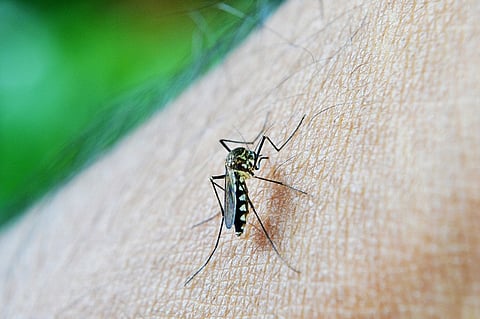

On Friday, 29-year-old K Rajni from Sainagar Colony in Saroornagar, Hyderabad became the latest victim to dengue, reportedly dying of Dengue Shock Syndrome soon after she gave birth to twin babies.
With the spread of repeated outbreaks of dengue across various parts of the country, the number of deaths due to the disease is also significant. In 2015, for instance, 220 people out of a total of 99,913 reported cases died due to complications from dengue. In 2016, upto October 2, the number of deaths stood at 93 out of a total of 51,731 cases.
While there is no cure for dengue, proper symptomatic treatment of even severe cases of dengue can help save lives. It is, therefore, vital for patients to seek timely and proper care when they manifest symptoms of serious occurrences of the disease.
What is Dengue Shock Syndrome?
Dengue Shock Syndrome (DSS) is the final stage of the more severe occurrence of dengue – Dengue Haemorrhagic Fever (DHF), and is fatal without prompt treatment.
DHF is a severe form of dengue which affects blood and lymph vessels, and if untreated can lead to a failure of the circulatory system. It is this point, where the circulatory system fails, sending the body into bleeding and shock that is called Dengue Shock Syndrome.
Symptoms of DHF and DSS
While DHF initially manifests like milder cases of dengue fever, warning signs often emerge around the time the fever starts to reduce. These warning signs include severe abdominal pain, vomiting, mood changes including irritability and restlessness, skin bruising and haemorrhages, or nose and gum bleeding. More severe cases can also manifest bleeding in other parts of the body including the vagina and within the cranium.
Despite the name, however, DHF primarily involves plasma leakage, which causes problems to the circulatory system by increasing vascular permeability, the degree to which different substances can move into and out of blood vessels. If this condition is not treated, patients can progress into DSS.
Symptoms of DSS include sudden drops in blood pressure, a rapid, weak pulse, breathing problems, dilated pupils, cold clammy skin, dry mouth and restlessness. Once a patient goes into DSS, it could be fatal within 12 to 24 hours, unless treatment is given immediately.
Why do some people suffer severe dengue?
A comprehensive picture of the reasons for why some patients suffer from DHF/DSS is not yet available. However, it is generally found that people with weakened immune systems and those who are contracting a second dengue infection, are more vulnerable to DHF. Patients who have contracted dengue become immune to the particular strain that they get infected with, but are not immune to the other three strains of the disease, and become vulnerable to DHF if they get infected with a different strain.
Other risk factors include having certain chronic diseases like asthma, sickle cell anaemia and diabetes mellitus, as well as variations in human leukocyte antigen alleles (genes involved in the functioning of the immune system).
Since there is no cure for DHF/DSS, but only treatment of the symptoms, it is vital that anyone exhibiting symptoms of DHF be properly monitored, so that fluid replacement and other therapies can be given early and quickly to prevent progression of circulatory problems.